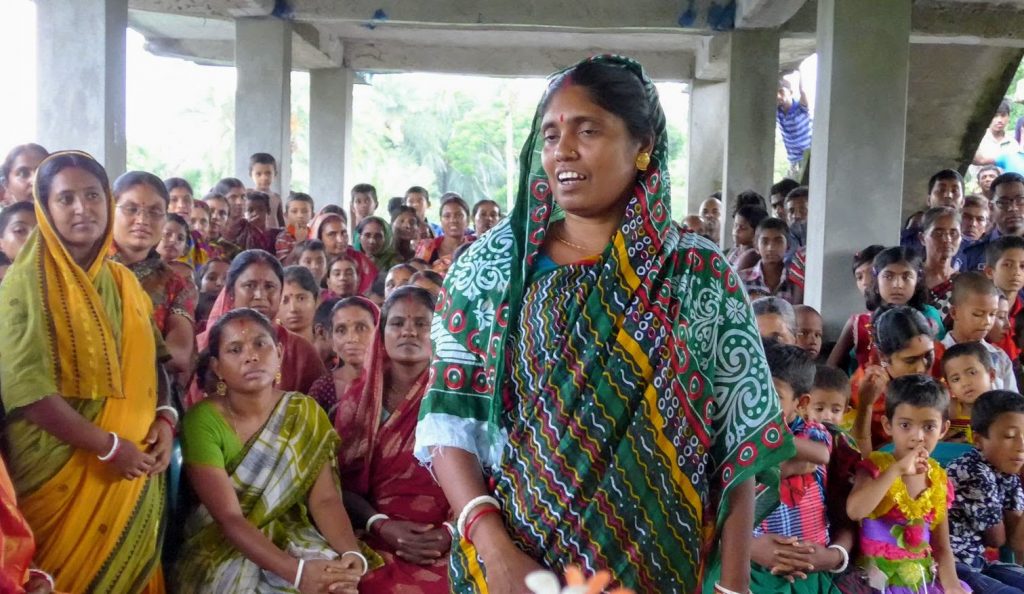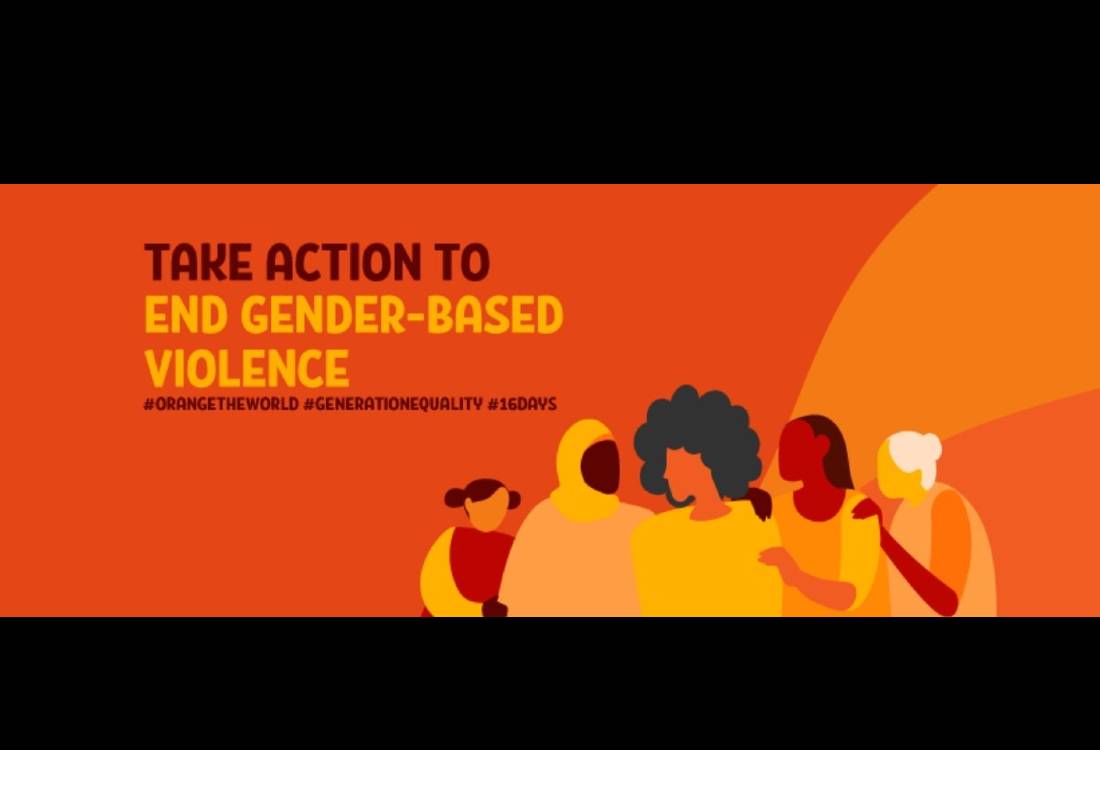November 26, updated 2022 – Second in a series by John Coonrod for 16 Days of Activism Against Gender-based Violence. Featured image: UNWomen.
Last Thursday was the Thanksgiving Holiday in the US. We, and everyone, should be most thankful for the community leaders — mostly women — who have stepped forward to protect their communities from the ravages of COVID-19, including the spike in gender-based violence.
One thing we can give thanks for in the US is the government agencies are rolling out implementation strategies for the new, first-ever National Strategy on Gender Equity and Equality launched last year. A key provision is to support community-based organizations led by women, girls, and members of other underserved communities, including LGBTQI+ people. the White House released this One Year report on steps taken.
How do women living in impoverished, deeply conservative rural communities fight gender-based violence, including child marriage? You can ask them!
Hundreds of local organizations in the Movement for Community-led Development build the capacity of women to be the key change agents in their communities. Halting gender-based violence, including child marriage, is usually their highest priority.
A few years back, I sat down with community members and elected leaders in Betaga union in Bangladesh. A decade before, no women would attend such a public meeting, now they were clearly in the majority in the gathering. At their urging, the elected chairman had declared zero tolerance for domestic violence and child marriage. Some visitors were skeptical. How do you handle this, they asked the women?
One woman stepped forward and explained: “Well, when a husband beats his wife, we go and speak to him and let him know this is a crime, and he could go to jail. If that doesn’t work, we have the chairman go and threaten him with jail, and make him publicly promise to never beat his wife again.” Then another stepped up and said, “Except one time, even that didn’t work, so we just bribed the police to beat him up!”

It is a sad comment on our stand for human rights that many people fail to consider child marriage a form of gender-based violence. It is, after all, rape. Early child-bearing carries a high risk of death for child and mother, and often leads to stunted physical and mental development. It almost always means an end to a girl’s education. Bangladesh has one of the highest child marriage rates in the world: 59% before age 18, 22% before age 15. How do these women stop it?
The women explained: “Many people know it is a crime, so they plan to do it in secret. But we listen to the gossip. If we hear about a marriage, we go and explain to the family why it is dangerous to their daughter and to their future grandchildren, and that it is against the law and we could have them sent to jail. If that doesn’t work, we have the chairman visit, and that usually works. But when we don’t hear about it, we know that it will happen on an auspicious day. We know about these days, so we watch carefully on those days, and if we see a wedding, we mobilize everyone and go and stop it.”
Many educated urbanites consider rural communities hopelessly backward, but this is not the case. Rural communities are “micro cultures” and – with leadership – traditions and norms can change surprisingly fast. Studies (link here) have shown how males come to respect women’s leadership once they are exposed to it. Another study (link here) has shown how trained rural grassroots women leaders can adopt very progressive gender attitudes and pass those on to others.
Change happens in communities, as people interact with community leaders that they trust. When women are those trusted leaders, change can be both rapid and lasting. It’s in such revolutionary communities that one can experience the truth in author Arundhati Roy’s 2003 quote: “Another world is not only possible, she is on her way. On a quiet day, I can hear her breathing.”
The message to all of us is – we need to invest in building the capacity of grassroots women leaders. Supporting another million women leaders could make all the difference in bringing gender-based violence to an end.
The bad news — only about 1% of aid is going to grassroots women’s organizations. This must change. It’s truly time to #ShiftThePower.
The new US Gender Strategy commits to listening. It concludes by mandating that “all agencies and offices involved in the implementation of this strategy will also regularly seek and reflect input from the people whom the strategy is directly intended to benefit.” That step could be transformational.


